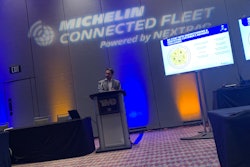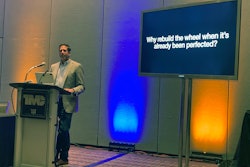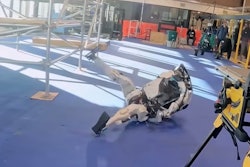CCJ Innovators profiles carriers and fleets that have found innovative ways to overcome trucking’s challenges. If you know a carrier that has displayed innovation, contact CCJ Chief Editor Jason Cannon at jasoncannon@randallreilly.com or 800-633-5953.
The transportation industry saw record-breaking fuel prices in 2022, and with diesel prices average in excess of $4 a gallon in the U.S., mistakes are quite costly.
Des Moines, Iowa-based fuel hauler Solar Transport, which has about 220 drivers and 120 trucks serving the Midwest and Rocky Mountain regions, was on track to hit almost $2 million in fuel delivery errors in 2022, said Director of Driver Services Jason Jones.
Industry studies regarding tank-truck usage patterns across the U.S. show that the unintended mixing of octane types at a fueling site happens once in every 14,000 deliveries nationally. A diesel/gasoline mixup occurs once in every 45,000 fuel drops across the country, according to information compiled in a 2021 Civacon case study of R.B. Stewart Petroleum Products Inc.’s use of the CivaCommand Smart Tank System.
Solar Transport made 126,713 deliveries in 2022. With so many manual steps drivers perform when dropping fuel, Jones said cross-drops – when the wrong product is loaded into a tank – are bound to happen.
While Solar Transport continues to seek ways to further reduce errors, it has seen a 52% decrease in cross-drops and a drop in turnover from 56% to 23% since implementing customized automated workflows.
“The driver’s job is very manual in terms of when he gets to the location. He has to hook up all the hoses to the appropriate compartment, make sure that he loads it correctly and so forth. There are a lot of steps that take place for delivery,” Jones said. “We had an overabundance of missed pulls (when a fuel hauler pulls the wrong product or the wrong supplier for the customer directive), which led to cross-drops, which turns into huge expenses on our behalf. That's where we wanted to come back and adjust our workflow with how the driver proceeds with the order… We've saved thousands, if not millions, of dollars by creating an automated workflow.”










